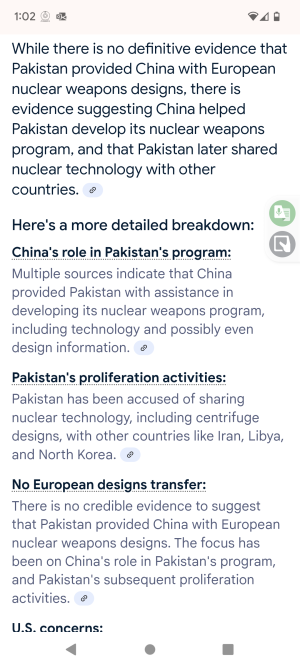- Joined
- Aug 29, 2023
- Runs
- 43,271
The 2025 India-Pakistan crisis, triggered by the Pahalgam attack and escalating into missile strikes (Operation Sindoor) and retaliatory operations (Operation Bunyan-um-Marsoos), has reignited debates over Pakistan’s nuclear weapons program.
During the May 2025 conflict, both sides exchanged missile strikes but refrained from an all-out war, suggesting that nuclear threats imposed restraint.
However, the crisis exposed doctrinal instability, as India shifted away from its No First Use (NFU) policy, escalating risks of miscalculation.
Yet, critics argue that nuclearization has failed to resolve Kashmir, as both nations continue to engage in proxy wars and limited conflicts under the nuclear umbrella.
Please vote in the poll and share your views on this.
Nuclear Deterrence in Action:
Pakistan's full-spectrum deterrence doctrine, including tactical nukes like the Nasr missile, was developed to counter India's conventional superiority and Cold Start strategy.During the May 2025 conflict, both sides exchanged missile strikes but refrained from an all-out war, suggesting that nuclear threats imposed restraint.
However, the crisis exposed doctrinal instability, as India shifted away from its No First Use (NFU) policy, escalating risks of miscalculation.
Youm-e-Takbir & Pakistan’s Nuclear Legacy:
Youm-e-Takbir (May 28) commemorates Pakistan’s 1998 nuclear tests, conducted in direct response to India's nuclear tests earlier that month. The 2025 crisis reinforced the belief among Pakistani strategists that nuclear weapons remain essential for national security.Yet, critics argue that nuclearization has failed to resolve Kashmir, as both nations continue to engage in proxy wars and limited conflicts under the nuclear umbrella.
Conclusion
While Pakistan’s nukes may have deterred a larger war, the 2025 crisis shows that deterrence alone cannot ensure lasting peace. The risk of escalation remains, especially as both nations modernize their arsenals and adopt more aggressive postures.Please vote in the poll and share your views on this.






